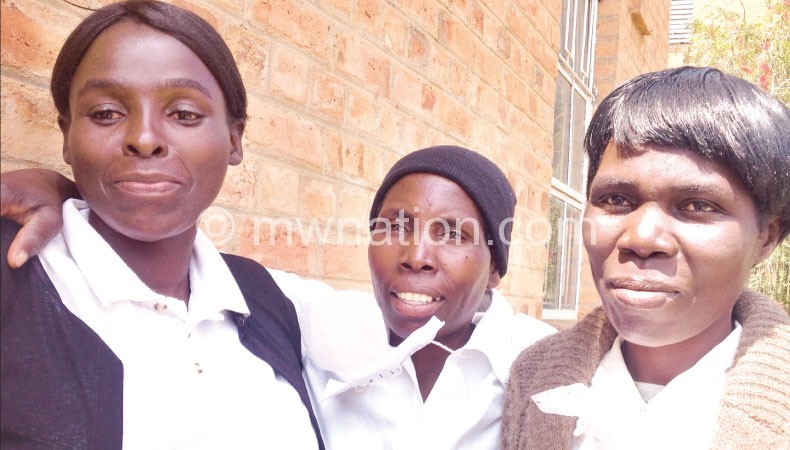Taking ECD to another level

The three women sensed danger. They knew they had to do something to protect the lives of children in the village. Cash-strapped and with little education, they embarked on a journey of protecting vulnerable children from abuse.
Fellow villagers called them names but they did not tire in their efforts to support and protect needy children through a community-based child care centre (CBCC).
The women, from Chamalaza Village in Nkhorongo Ward, just outside Mzuzu City, identified an old khola where they opened their CBCC.
Though without the basic 12-day formal training in child care giving, they ran the centre, which started with 16 children, with zeal and passion.
Nine years down the line, the centre has 76 children, receiving care from the three women who have since undergone a two-week early child development (ECD) course.
Among other things, the women were trained in using locally available resources to impart skills to the children and promote learning through play.
However, the centre still has two untrained care givers.
For the three women: Cecilia Ngulube, 50, Cathreen Katumbi, 39, and Ephrida Mubisa, 37, their efforts have been worthwhile.
Katumbi says although they do not get a salary, they get their satisfaction in seeing the future leaders cheerful and malnutrition free because the centre also offers nutritious porridge.
She says since they opened the CBCC, there is a positive change in how the children who attend the centre progress in primary school.
“The beginning was tough because most parents thought we wanted to benefit from their little ones. But now the perception has changed. Most parents are positive and bring their children to us when they attend to their businesses in town,” says Katumbi, who holds a Malawi Junior Certificate of Education (JCE).
She says some parents would abuse their children by letting them do chores beyond their age.
“We had cases of little children below the age of eight being burnt while cooking beans on open fires, while their parents were on business errands, we could not just sit by and watch,” she says.
The caregivers say it was also disheartening seeing physically challenged children locked indoors because their parents had no time for them. Currently, the centre has five physically challenged children.
The villagers now contribute food and other items for the centre’s operations, according to Ngulube.
She says the villagers, with guidance from their village head, have now constructed a learning block and with funding from some Scottish women, they managed to buy iron sheets.
Ngulube, however, says the village still has some few parents who are not willing to send their children for early childhood education.
“We report such parents to child protection volunteers and some eventually bring their children to us,” she says.
Association of Early Childhood Development in Malawi vice board chaiperson Aston Msukwa says there is need to sensitise parents to the importance of sending their children to ECD centres.
He says children who attend early childhood education remain in school and have a better class performance compared to those who have never attended pre-school.
However, things are not all rosy with the association that monitors ECDs in the country, as Msukwa explains: “We do not have sponsorship for us to be well equipped in training caregivers. We also do not have vehicles for monitoring child care centres in the country.”
He further says because of the financial challenges, his association is failing to train more care givers for an improved care giving system.
Currently, there are 1.1 million children attending CBCCs, pre-schools and day care centres; making Malawi one of the countries with the most extensive network of ECD in Africa.
According to a May 2009 study titled ‘A Positive Deviance Study of CBCC in Malawi’, the country’s CBCC approach has been rated as a more successful ECD model, and the community-based approach has been suggested as a replicable model for other countries.
The study found that some positive deviant CBCCs were linked to a number of partners that provide ECD-related services such as community based organisations (CBOs).
Chamalaza CBCC gets support from Tovwirane CBO whose members prepare porridge for the little ones.





